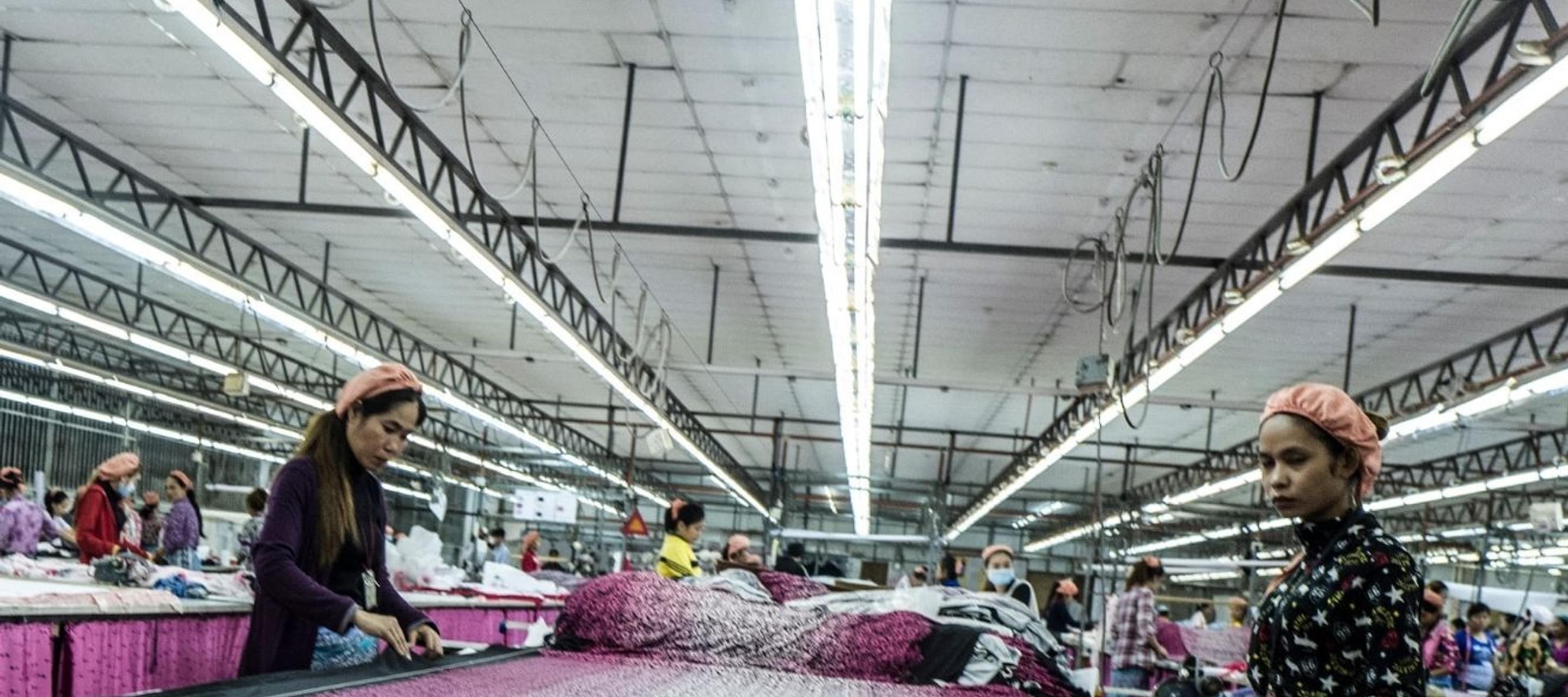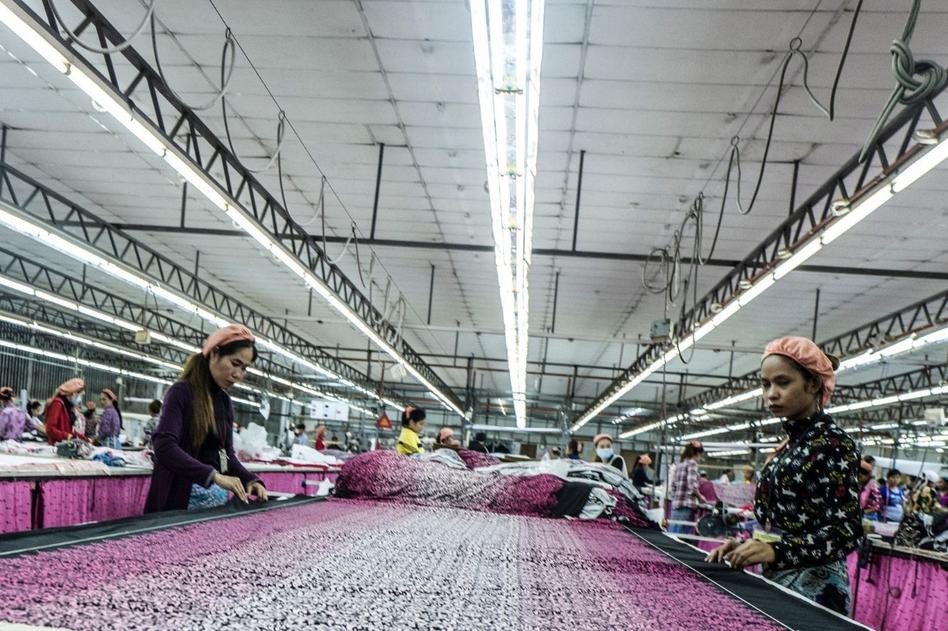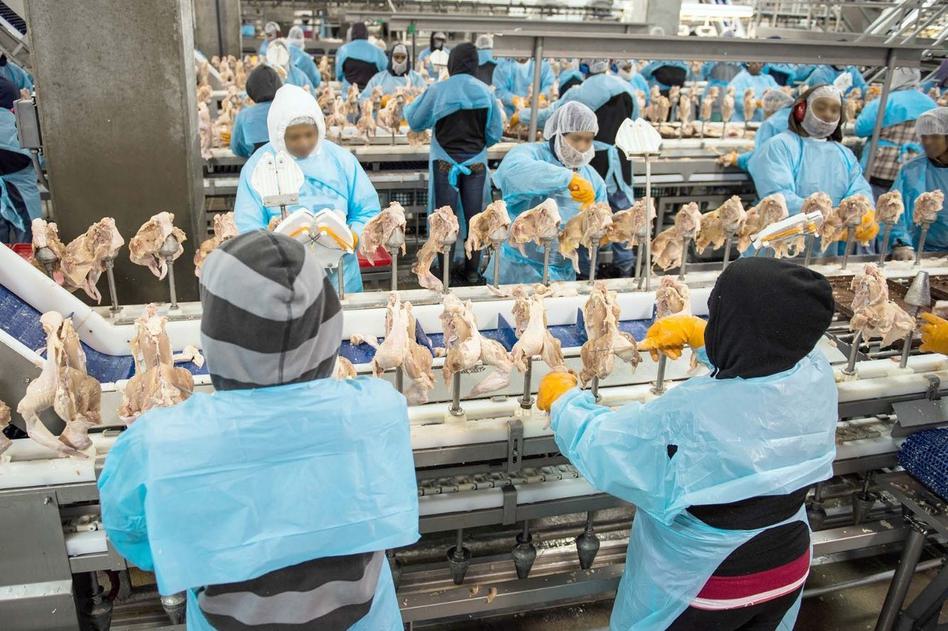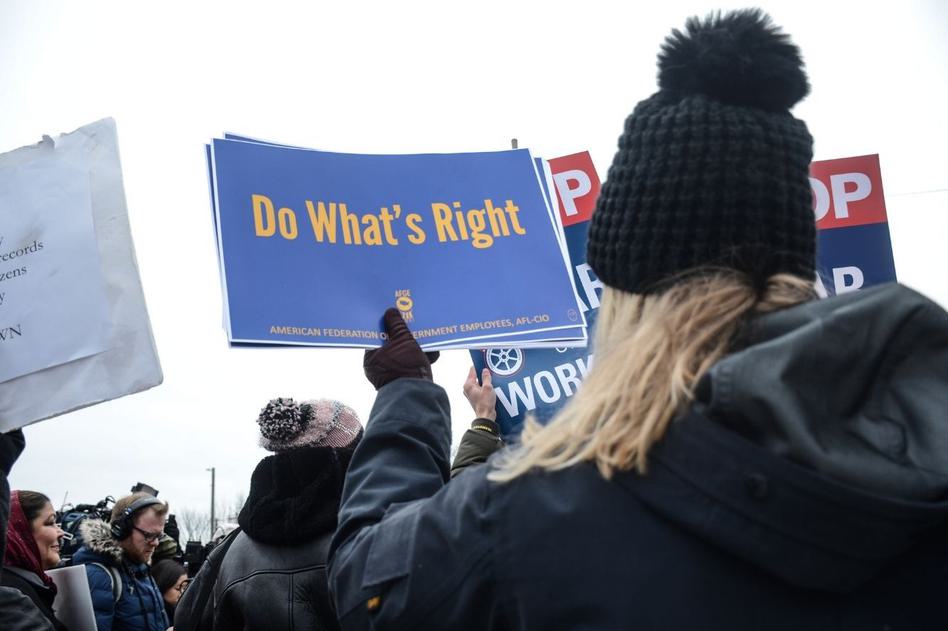Top Ten Business and Human Rights Issues in 2020
3 December 2019

To mark International Human Rights Day, December 10th, IHRB has once again identified ten key issues that will be of particular importance in the arena of business and human rights in the year ahead.
At the start of a new decade, the human rights movement faces a perilous future. The multilateral, rules-based system is under attack, the climate crisis is at the point of no return, and the future of work itself is in a state of profound change.
At this inflection point, and to mark our 10th anniversary, IHRB is also publishing a short history of the business and human rights agenda and podcast conversation with diverse experts that seek to offer useful reflections on the future direction of the movement.
As always, we welcome your comments, feedback, collaboration, and ideas.

Just Transitions
Confronting the climate crisis while fostering rights-respecting jobs and empowered communities
Responding to the climate crisis requires fundamental changes to the global economy that will have far reaching impacts, including for the future of work and efforts to progressively realise a range of economic, social, and cultural rights.
Energy value chains are complex, and the major economies are energy intense. As a 2019 report by the UN Conference on Trade and Development warns that without thoughtful transition “the loss of revenue from the energy sector could be destabilizing internally, regionally and even internationally.” This is why the International Labour Organization is promoting the importance of transitioning to a “green economy” in a way that can act as an engine for growth and decent work creation.
But the current reality is that many workers who will lose fossil fuel jobs as a result of required responses to climate change will not have the skills or access needed to seize new “green” employment opportunities. Experts point out that improved justice for workers and transitions to a low-carbon economy are not happening at the required scale or speed needed to meet trade union and civil society approaches to achieving a Just Transition. Added to this, the increasing corporate focus on automation across multiple sectors risks an even greater loss of current jobs in the coming decade, expanding further the knowledge gap between developed and developing economies.
Transitioning to a low-carbon, climate-resilient society at a time in which the nature of work itself is undergoing profound transformations will require new forms of collaboration between governments, companies and workers, and on a timescale that is unprecedented. Human rights principles, standards and approaches will be tested severely and yet must remain at the heart of these efforts.
Strategies for fostering decent employment opportunities in all regions will need to be devised, tested, and the most promising ones rolled out urgently, in particular in countries facing climate-related crises with large and rapidly growing youth populations. The effectiveness of efforts to advance the concept of the “circular economy” needs to be clarified as part of rethinking the use of resources globally and addressing intersections with international trade.
The year ahead will be marked by a growing sense of urgency in determining how responsible companies should engage with all sectors of society in fostering just transitions that ensure respect for the rights of workers and communities around the world.

Fake News
Harnessing collective power to combat lies and propaganda online
The Internet should enable access to information that states or powerful interests want suppressed. But the troubling spread of misinformation and disinformation online presents serious challenges, including for business. Propaganda on radio and television could once be physically ‘jammed’ in the past. It is harder to do so with the Internet, where purveyors of false information or "fake news" find newer ways to reach their targets for a growing range of purposes.
The impact on human rights is clear, and the implications can be national and global. When one side of a debate or campaign has access to sophisticated technological tools to intervene on a matter of public importance – and manipulates human thinking towards a specific outcome – democracy is undermined and consensus stifled. This is not only a matter that should concern human rights defenders, civil liberties lawyers, politicians, and journalists. Policies based on misinformation and poor analysis can affect businesses, adversely impacting their viability. For example, those denying climate change and resisting the transition to a non-carbon economy are not only undermine public policy, but also the viability of companies investing in clean technology.
Companies that provide gateways to the Internet – web service providers, those that facilitate dissemination of information, and those that catalogue information and make it accessible – are at the centre of the fake news storm. These companies have argued for too long that they are ‘safe harbours,’ merely the providers of infrastructure – like roads or power cables. They have argued that the data moving through their pipelines should be the responsibility of others, such as those creating and regulating the distribution of content.
That argument is wearing thin, partly because the companies have been complying with requests to take down content, shut down access to the Internet, and make data available to regulators. These actions have human rights impacts. The companies involved have also been using their own policies aggressively to control what is said – or not – on their infrastructure. This has profound consequences. In future, companies like Facebook will have to reckon with the fact that they are publishers, not merely carriers. Companies and governments need to join human rights defenders, civil society groups, journalists, and writers in the battle to protect truth and facts online.

Purpose
Redefining the role of corporations to align with societal expectations
In August 2019, the US based Business Roundtable surprised shareholders and stakeholders alike by publishing a statement which argued that companies should no longer advance only the interests of shareholders. Instead, they must also invest in their employees, protect the environment, and deal fairly and ethically with suppliers. The Roundtable’s membership includes some of the world’s largest companies, including Apple, Pepsi, Walmart, and JP Morgan Chase. While not saying anything that would surprise activists who have been making similar points for decades, the Roundtable’s position suggests emerging agreement that companies have a larger social purpose beyond profit.
Critics have long challenged the single-minded pursuit of profit – and the tyranny of short-termism – as the reasons why companies often act irresponsibly. Many investors now hold a company’s shares for extremely short periods, and the so-called shareholder myth makes it harder to claim investors have a company’s long-term interests in mind. Proposals to redefine the purpose of a corporation have been widely praised, but increasingly experts are asking if the ‘purpose paradigm’ has anything to offer other than ‘empty slogans.’ Indeed, there has been significant criticism of companies that embrace the global development agenda through philanthropy, as ‘the elite charade’ of changing the world. Companies have been eager to associate themselves with the UN’s Sustainable Development Goals without paying adequate attention to the human rights impacts of their actions, as required by the UN Guiding Principles on Business and Human Rights. The inadequacy of the state and the market has also focussed attention of experts on how governments and companies are leaving communities behind in their search for economic gains.
Clearly, societal expectations about the roles of business are changing. The implicit promise of three decades ago – when the Berlin Wall fell and market-led economic globalisation spread widely, with companies investing in far-flung corners of the world – was that a ‘rising tide’ would lift all boats. That has not happened for many. Countries that have seen significant losses in jobs are turning isolationist and those that have not benefited from free trade and open markets are looking for new approaches to ensure greater social protection. Together with the climate crisis and technology-induced redundancies, the year ahead will likely see growing demands for a reset in the role of the corporation in modern society, including who companies should be answerable to, and what stakeholders can expect from them. The Business Roundtable statement, the reflective thinking by CEOs, are only the beginning – stakeholders, investors, affected groups, consumers, will be demanding more from companies.

Cities
Embedding dignity while building communities
Climate change, economic inequality, and conflict are pushing growing numbers of people into cities. By 2050 two thirds of the world’s population will live in urban areas. 90% of this increase will be in Asia and Africa.
With national governments increasingly reneging on their commitments, and global governance institutions weakening, there is a growing spotlight on the role of regional, local, and municipal governments in advancing human rights. From zoning policies, to the provision of essential services, to procurement practices, urban governments can guide development in a way that expands people’s ability to lead fulfilling lives. Coalitions of mayors and cities are driving progress in areas such as climate action, adequate housing, offering refuge to those fleeing persecution, advancing social inclusion and children’s rights.
The challenges cities face are stark. These include housing affordability crises exacerbated by excessive financialisation and speculation, corruption, lack of clean water and sanitation, and unequal access to green space. Anti-government protests throughout 2019, from France to Chile and, to some extent the political protests in Hong Kong, are fueled by deepening spatial inequality. Meanwhile, a race to the bottom within much of the construction industry exploits workers, and contributes to deadly building collapses and fires.
In many cities, the rise of ‘POPs’ – privately-owned public spaces – and the increase in surveillance technology have profound implications on the right to privacy, closing down the space for legitimate public protest and freedom of assembly. ‘Hostile architecture’ keeps homeless people from sleeping on the streets. And facial recognition technology poses significant human rights challenges.
Attention is increasingly turning to the city as an arena for tackling some of the most persistent barriers to widespread equality. A shared vision is required, and as governments seek to attract investment to meet the needs of growing urban populations, this investment must flow in a direction that helps improve the lives of all residents, particularly the most vulnerable. The full built environment lifecycle must be taken into account, including the interconnections between phases and actors, and business will have to rise to the challenge. The year ahead should see greater attention to inspirational examples – from disability access to social housing and hospital design - of what can be done to make cities welcome and livable for all.

State Action
Expanding calls for mandatory human rights due diligence
The 2019 UN Forum on Business and Human Rights highlighted growing calls for states to move from rhetoric to reality, with the overall theme of “Time to act: Governments as catalysts for business respect for human rights.” Since 2011, only 20 governments have adopted national action plans (NAPs) on business and human rights with similar numbers currently in process. Guidance to assist states in the development of such plans alongside related follow up initiatives and initial comparative reviews provide useful tools to assess good practice.
Although NAPs do raise national awareness and encourage greater state policy coherence, critics argue that NAPs fall short in concretely advancing effective protection of rights. Discussions at the 2019 UN Forum pointed to unsatisfactory progress on business performance and disclosure, calling into question the effectiveness of measures taken so far. Indeed, even the world’s largest companies in key sectors are still far from achieving the levels of performance expected by the UN Guiding Principles, as demonstrated, for example, in the findings of the latest Corporate Human Rights Benchmark. This slow progress is also a key driver of ongoing debates around the need for an international legally binding instrument on business activities and human rights.
In an effort to move beyond purely voluntary frameworks, some States have taken steps over recent years to adopt new binding regulations with a particular focus on human rights disclosure requirements for large corporations. Several of these steps focus on combatting modern-slavery and human trafficking, notably regulations adopted by the US state of California, the UK, and Australia. A small number of states such as France have taken a more holistic approach, requiring that companies provide evidence of actions being taken to identify, assess, and prevent abuses. In March 2019, a European Parliament working group also launched a “Shadow EU Action Plan on Business and Human Rights” calling on the European Commission to adopt due diligence legislation.
Due diligence may not successfully prevent every human rights abuse, but there is growing recognition that it is the best line of active defense. The legislative models being used by different states often influence each other, and critical reviews calling out lack of enforcement mechanisms to date may toughen the scope of forthcoming measures. Notably, a growing number of companies and business associations have made public statements expressing support for new human rights due diligence regulations as a way to level the global playing field on these issues – a trend likely to continue in 2020 at national and regional levels.

Sexual Harassment
Transforming cultures and developing robust grievance mechanisms to eliminate abuse at work
Over the past two years, allegations against powerful men in government, the judiciary, international NGOs, the academy, and particularly in the media and entertainment industries, shocked people around the world. That such incidents involved successful and powerful women gave the issue increased prominence.
The world has learned it is only the tip of the iceberg. The corporate world has been shaken and is changing slowly, but has yet to develop clear protocols, systems, and internal cultures to deal with a phenomenon that reflects a larger societal malaise.
As women who work in the farms and fields, on shop floors, at mining sites, in the services sector, and women who live near large business operations have always known, sexual harassment and “sextortion" are nothing new. The issue is far bigger than the #MeToo movement, and far greater accountability is needed.
Systemic change is needed in the way companies address gender equity and diversity. Measures such as gender audits, rethinking how workplaces are organised, how incentives are provided, and how opportunities are offered for career advancement are essential. Equally important, approaches which help employees shape their jobs and the time they devote, and support companies attract and retain young women in non-traditional fields can make significant differences.
Steps like these won’t eliminate sexual harassment in the absence of deeper transformations. Dismantling the hidden cultures of male privilege and impunity is a critical task. While having more women as senior executives and on boards are necessary steps, they are insufficient. Companies need to unearth the hidden biases and privileges that produce abusive behaviours. At a minimum, they must establish robust grievance mechanisms trusted by intended users, and include quality of the working environment and freedom from harassment in performance assessments of managers.
Harassment, bullying, and violence – physical or verbal – have no place at a workplace. The new guidance from the UN Working Group on Business and Human Rights, and emerging work on organisational culture change, are useful tools to align practices and policies to eliminate discrimination and establish workplaces where every individual – regardless of gender or sexual identity – feels safe.

Weaponising Lawsuits
Stopping the practice of blocking human rights defenders from challenging business activity
For too long, companies and civil society organisations have viewed each other as polar opposites. While constructive partnerships are possible, and examples of creative collaboration that lead to positive change show what can be done, the relationships between business and civil society have too often been adversarial. Indeed, these sectors represent entirely different viewpoints, and more often than not their aims, objectives, and priorities differ. But that is hardly unique; companies do not necessarily share the opinions of their competitors, nor of their home or host governments.
And yet, over the years, high profile incidents, such as in the Niger Delta and, more recently, in Honduras show how conflicts come to the fore. Companies have resented individuals and organisations who challenge their business operations, and have sought the help of governments, and often their security forces, to protect their assets and people. This has had devastating consequences on communities that live around companies’ facilities, or which are impacted by their activities. The UN Special Rapporteur on the situation for human rights defenders and others have argued for greater protection for human rights defenders that challenge abusive corporate activities, and some companies have come together with civil society groups to promote dialogue between defenders and companies.
One crucial area where corporate action will be scrutinised sharply in the year ahead concerns attitudes towards lawsuits against human rights defenders. In many countries, the space for dissent is shrinking and human rights defenders are being attacked or sued by government agencies. More disturbingly, some companies have made use of strategic lawsuits against public participation, or SLAPP, to prevent civil society organisations from confronting corporate misconduct. This is a distressing trend, which undermines human rights. Companies will be increasingly challenged and face campaigns to desist from using such tactics to prevent legitimate public participation of this kind. Human rights law is clear about the right to political participation and peaceful expression of views, as well as freedom of assembly, and SLAPP cases aim to undermine those rights. It is in companies’ interest to ensure a clear, open channel of communication with their critics. They can reassure civil society by pledging not to make use of SLAPP actions in the future.

Surveillance
Establishing safeguards for new technologies that may undermine rights
Technology is not only omnipresent, but proponents have championed its potential to transform lives and help promote and protect human rights with little or no downside risks. Artificial intelligence can speed up processes and thinking, offering solutions simply too time-consuming for human minds. Facial recognition can reunite families in war-affected regions. Algorithms can take guesswork out of decision-making. Recruitment agencies can use new technologies to help eliminate inherent biases.
But caution is essential as the risks are significant. Facial recognition technology has produced false positives leading to decisions that undermined rights. Law enforcement officials have made mistakes. There are significant privacy implications affecting human rights defenders. Artificial intelligence can accentuate bad decisions and human biases, strengthening decisions influenced by such thinking. In a world without universal rules on where and how technologies can be exported, and under what conditions they can be used, there are grave risks about how it is deployed in many parts of the world. Regulators are still coming to grips with concerns over the use of algorithms as think tanks have warned of the risks involved.
Companies will have to move with extreme caution as they apply technology to address human concerns. Undoubtedly, technological tools assist human decision-makers but human rights are based not on economic efficiency, but justiciable, fair and equitable outcomes which protect dignity, autonomy and agency. Dealing with this dilemma is not a simple matter, and tech companies and venture capitalists that support them will need to consider the wider social and human rights impacts of their decisions in the years ahead. The safeguards include the kind recommended by David Kaye, the UN Special Rapporteur on Freedom of Expression, who has called for a moratorium on the sale of certain technologies and democratic supervision of companies, as well as recognition among tech companies that they must work with experts to develop products and services that enhance efficiency without undermining human rights.

Worker Voice
Defending rights of assembly and speech at work
People do not leave their opinions and identities at home when they come to work. They bring their viewpoints, prejudices, and convictions to their factories, offices, and other workplaces. Negotiating that space is a challenge for companies, because permitting the expression of some views may undermine others’ rights, and complying with government orders, for example, by suppressing workers’ involvement in peaceful protest, can infringe personal liberties. Companies have long been compelled to modify policies and practices because staff have taken strong views on important issues, from dockworkers campaigning against apartheid to those calling for management to change business practices in the Occupied Territories. In some cases, workers have acted on their own, as was seen when Google employees succeeded in lobbying their management to stop working with the US Department of Defense over a controversial project.
These issues took on sharper focus in 2019. When employees of companies in Hong Kong participated in protests against the Territory’s government, dozens were sacked and in some cases top management left. In another case, one bank apologised after a senior staff member praised the Hong Kong protesters, leading to the employee resigning from the bank. In the United States, oil workers at a Shell facility would have lost pay if they refused to attend a rally by President Trump. Also noteworthy, the National Football League is still struggling over how to deal with Colin Kaepernick, the American footballer who began player protests at the start of games to highlight police brutality.
Companies will likely face many more challenges of this kind as the divide between ‘workplace’ and ‘home’ continues to blur. Workers will increasingly bring their whole identity to the workplace for good reasons that promote human rights, such as LGBTQI employees expressing their identities freely, and urge action on a wider range of issues, including the hiring of migrants and refugees and having space for political participation. Companies will need to work closely with human rights groups, trade unions, and other experts to develop strategies that support free expression and assembly, and intervene only if the views being expressed undermine others’ human rights.

Gender Identity
Understanding gender fluidity and making workplaces inclusive
People have always felt and loved in ways that do not conform to rigid societal norms. The human rights community and the world at large are beginning to recognise the complexities of human identity, in part by changing laws to more accurately reflect the diversity of that experience. Much more needs to be done, even as a growing number of countries have begun to decriminalise same-sex relationships, and recognise marriage between two people of the same sex.
Some companies have led admirably from the front, but far too many remain prisoners of social mores and norms that conform to the majority. Companies will no longer have that luxury. In seeking to attract and retain the best talent, they will have to deal with staff who do not fit into traditional norms and hierarchies. That will pose challenges. For example, some feminists express concern that full recognition of trans-women will have negative implications for the protection of women. But the debate is highly controversial, and there is still insufficient recognition of transwomen as victims.
Just as companies have been forced to confront questions about race, ethnicity, religion, class, and caste, and they will also have to come to understand gender fluidity in the context of workplace inclusivity. Adding to the complexity, lesbian groups are similarly concerned about being marginalised or silenced compared to other groups on questions relating to rights, although attempts are being made to reconcile competing views. University campuses and academic fora have also faced controversies over providing platforms to individuals who represent views that defy conventional understandings of gender. Aid and relief agencies are grappling with challenges posed by extending facilities to all who identify as women. One case has gone to an employment tribunal.
The subject of gender fluidity is a highly complicated matter, and companies will struggle to find the right path. Human rights discourse is evolving, and competing groups and perspectives are at times mutually contradictory. How companies analyse the context and develop strategies that can address the situation and protect the vulnerable will be major challenges in the coming years.



